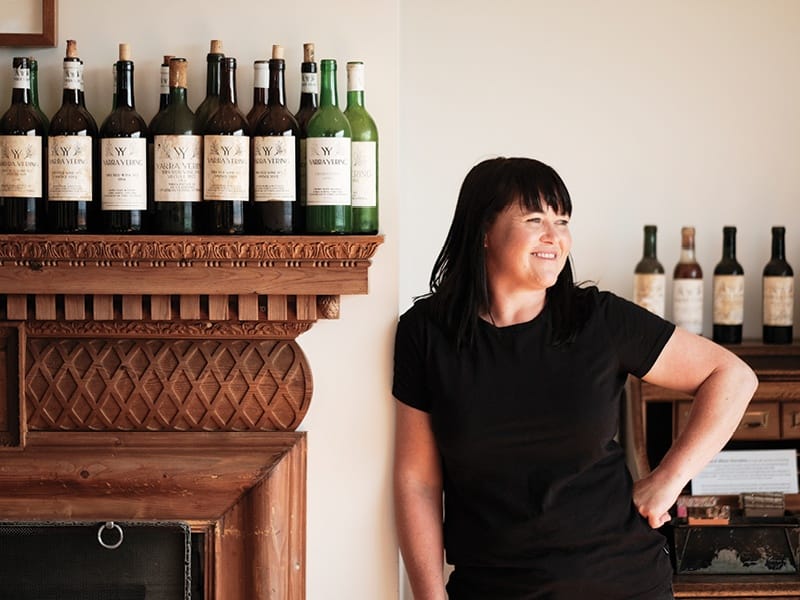
Yarra Yering’s award winning winemaker Sarah Crowe believes mistakes and trial and error are just as important as successes.
It’s 6.30am. The sun is rising over Yarra Yering and winemaker Sarah Crowe is already in the Yarra Yering vineyard. “I love going out grape sampling when it’s still early and crisp,” she says.
“The clouds are sitting in different pockets across the valley, and hot air balloons (as cheesy as it sounds) drifting quietly in appreciation of our landscape. They remind me that non-industry people love what we do and want to come and feel it, see it, hopefully taste it, take that feeling home with them and relive it through the wines.”
The James Halliday 2017 Australian Winemaker of the Year has always had a thing for nature. Her childhood was spent in Wollongong, on the south coast of New South Wales. “A fair hike to the nearest major viticultural region but the best beaches at your doorstep.” She fondly remembers the water, family holidays in caravan parks, riding bikes around in ‘gangs’, egging enemy caravans and playing on the beach. “I guess the landscape was something I always paid attention to; the way the vegetation changed as we drove south but also from the hills to the valleys.”
The wine industry didn’t beckon straight away – Sarah dabbled with the idea of accountancy in high school but a love of plants and the outdoors steered her towards horticulture. She cut her teeth in garden centres and at a plant propagation nursery. “After a few years, my sister and I decided to travel overseas. In France I saw lots of vineyards in stunning autumn colour and began to think it couldn’t be too much different to working with potted plants.”
Back in Wollongong, she plucked up the courage to phone Brokenwood Wines (she thought their wines were great) and spoke to vineyard manager and Hunter Valley legend Keith Barry (KB). “He said they had a few weeks’ work pruning, ‘Come on up’.”
Sarah lived in a bunkhouse above the cellar door. “I remember thinking, ‘Who does that, who is that generous to someone they don’t know?’ As it turns out, most of the people in our industry.” She’d found her people. “They were so kind, passionate and honest working.” When the work at Brokenwood dried up, she moved into the local caravan park while doing more pruning. “Those nights were icy cold but I didn’t care, I was going to convince someone to hire me. Brokenwood caved first.”
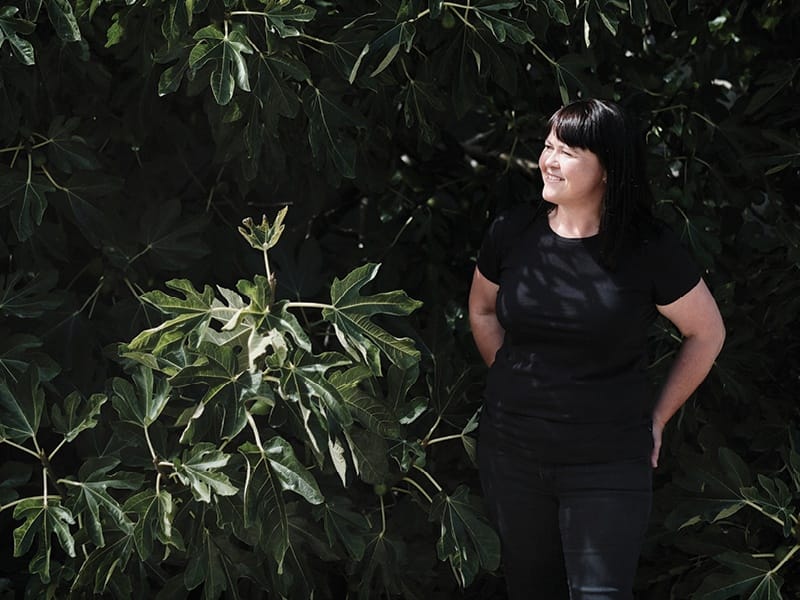
Sarah’s path to award-winning winemaking involved many a mentor, including PJ Charteris of Charteris Wines. “As the winemaker at Brokenwood, he made me his assistant when there were more experienced hands and more seasoned palates all around me.” Housemate Sam Connew (Tasmania’s Stargazer Wines) supported her through a redundancy and gave her strength to believe in herself, stand up for herself, be proud and stand her ground.
I remember thinking, ‘Who does that, who is that generous to someone they don’t know?’ As it turns out, most of the people in our industry.
Iain Riggs, also from Brokenwood, is another inspiration; moreso since leaving the company and the Hunter Valley. “There was this great period of about six years living in sharehouses in the Hunter Valley with other aspiring winemakers. We spent many late nights sharing bottles and lots of ideas were formed. I still call many of those people when I need advice, am a bit stuck or just curious.”
The move to Yarra Yering happened in September 2013. “I’d started to get itchy feet and began to think about where, other than the Hunter Valley, I wanted to make wine. I narrowed it down to the cool climates of Victoria and Tasmania, although Oregon, USA, would have worked, too. The position at Yarra Yering was advertised and I applied.”
When Sarah drove up the rustic driveway and laid eyes on the property, she knew she was home. “I remember thinking ‘I’m going to work here’.” Back then, it looked its 40-plus years. “Even so, I had this feeling. The energy was right.”
She had big shoes to fill. The late Dr Bailey Carrodus – a botanist, scientific consultant, Oxford University scholar and winemaker – began planting in 1969 after finding his perfect site at the foot of the Warramate Hills. After releasing his first vintage in 1973 (Dry Red Wine No. 1, a Bordeaux-inspired blend, and northern Rhône blend Dry Red Wine No. 2), he spent 35 years establishing the brand’s international reputation. After his death in 2008, the vineyard was sold to two businessmen, both passionate Yarra Yering fans. The cellar door, located in Dr Corrodus’ former home, has been open since he died.
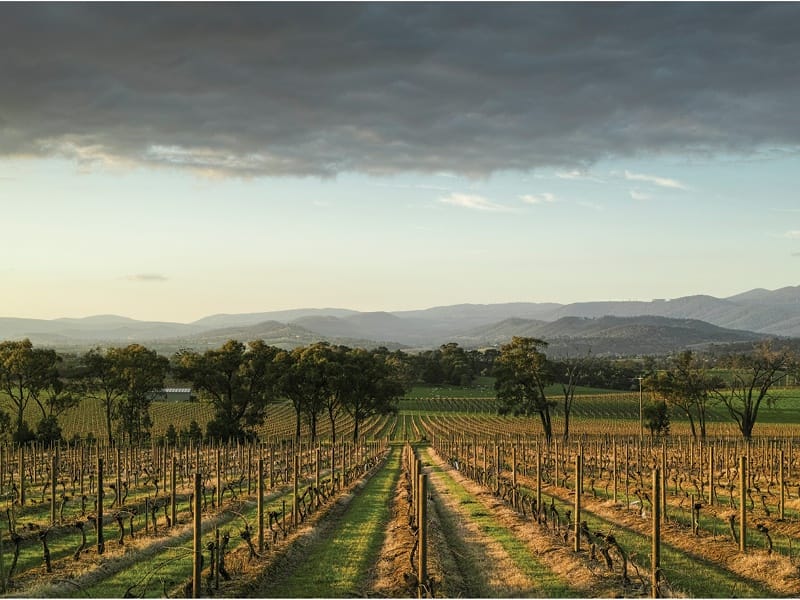
Now, Yarra Yering essentially has two vineyards – the neighbouring Warramate vineyard was bought for the 2011 harvest. Both are 100-percent dry grown on the north-facing aspect of the Warramate Hills and are warm sites in a cool region. “That allows us the luxury of growing many varieties well. Many of them are in tiny quantities, hand pruned, shoot thinned, and hand harvested. We don’t expect too much in the way of yield.”
Varieties include semillon, chardonnay, viognier, roussane, marsanne, riesling, pinot meunier, pinot noir, merlot, malbec, tinta roriz, touriga national, tinta cao, tinta armarello, alverahao, sausao, shiraz, mataro, cabernet sauvignon, petit verdot and cabernet franc.
It was excitement rather than nerves that drove her through her first Yarra Yering vintage. “When it came to blending the 2014 wines, that was crunch time. I put my game face on because I really wanted people to taste the wines and to recognise them as Yarra Yering. I didn’t want people to go ‘Oh, the wines are so different’. I wanted them to be an expression of the place, which is what they’ve always been.”
Sarah lives on a gravel road in Healesville. It is a large block with an established garden, home to her three chickens. “The garden keeps me pretty busy but I love it there, it’s very peaceful. Healesville is a great town with a quiet country feel but also great produce and lots of imported cheese. It’s still only an hour to Melbourne CBD.”
When she’s not tending to chooks, she is at the winery. Her philosophy is simple: make the best wine, every time. “I have an amazing vineyard that grows beautiful fruit but if I think I can draw on some of my experience to make any wine in front of me better, I will.”
The company’s approach to branding is similar. “If we’re going to do it we have to do it well or don’t bother.” She believes the winery at Yarra Yering, with its limitations and unique techniques, actually taught her more about winemaking than she brought to it. “You have to respond to the season and what you are seeing and tasting. Winemaking can’t be a recipe you follow year in, year out. You are always drawing on your past and continually learning. I am always talking to friends, asking what they do and deciding if I should trial it. That is how you learn and evolve your winemaking – through trial and error – and the mistakes are as important as the successes.”
Are there challenges that come with a new role at a well-established brand? “People are always asking for blanket statements about the wines, like they are all wild yeast or unfined and unfiltered. A lot of this comes from historical marketing of the wines but they are almost offended if I say ‘No, we don’t always do that’.” She pauses. “I think one of the strengths I bring to Yarra Yering is seeing great importance in the detail – a tweak here and there, is the oak mix right? I’m like the opposite of ‘minimal intervention’, more like an overbearing mother because I figure if I’m not doing anything then I’m out of a job.”
You have to respond to the season and what you are seeing and tasting. Winemaking can’t be a recipe you follow year in, year out. You are always drawing on your past and continually learning.
Her favourite time is vintage. “Vintage is a real buzz, making decisions on the fly, and using your intuition to respond to the conditions. Then there are the curve balls; you’re not really trying if you don’t have tradies on site most of the time. Regardless of the conditions we face and how tired we are, there is always good energy in the air.”
This year’s vintage involved the biggest crush through the winery ever.
“Last year was a record and this is a record on top of that. This year has been a bit more drawn out, so I’ve had more time to think through the wine ferments. It’s gone really well. I have a great team and they work well together. They’re quite mature, responsible and work in a very tight space. You have to be really mindful of everyone.”
What is a day in the life of Sarah Crowe like when she’s right in the thick of it? “We have a small winery area in which to receive and process fruit, as well as for fermentation and pressing. I tend to arrive early to get a head start on the forklift before a traffic jam occurs. I need to be organised to know where I’m at with absolutely everything. We have 94 600-kilogram fermenters that utilise most of the winery floor space. They are labour intensive and time consuming but an important part of our wine style and history. Keeping track of these and managing them well is my priority. Once the winery is humming (or vibrating these days) I spend time in the vineyard scheduling fruit intakes.”
Blending keeps her awake at night. “I find that quite stressful, closely followed by bottling. I’m constantly wondering if I have done enough and could it be better.”
Her role at Yarra Yering, being a Len Evans Tutorial Scholar, and completing Future Leaders of the Wine Industry are just a few highlights of a career going strong. Winning James Halliday’s Winemaker of the Year for 2017 was a standout moment. “You slog away at this industry just hoping that people like the wines you are making, buy them and enjoy them. When I came to Yarra Yering people expected so much more from me and the wines. The brand had history and a loyal following, the wines needed to taste like the vineyard and be made in the style that they have been for 40-plus years. They needed to invoke memories.”
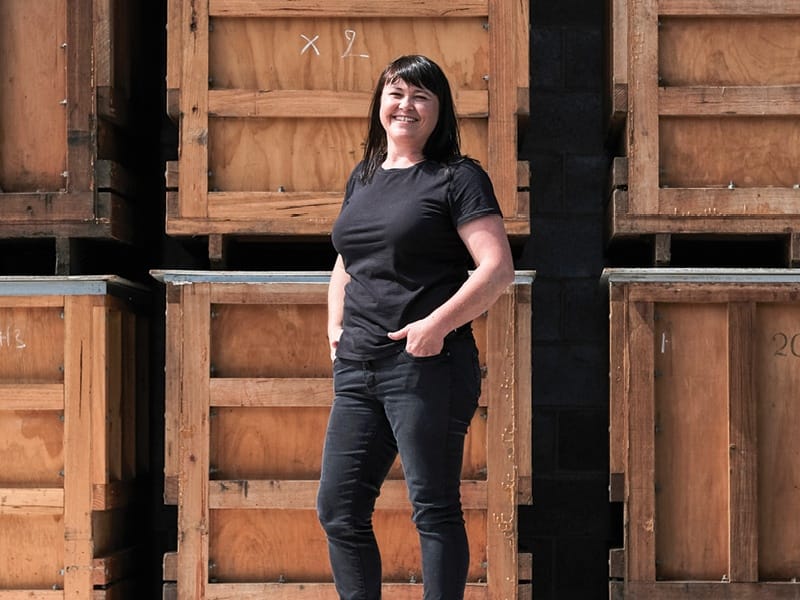
Blending the 2014’s (her first vintage) wasn’t easy. “I took my time and great care to be respectful to Dr Carrodus and the legacy he had left. I believe no one is as familiar with the wines that have come from Yarra Yering as James Halliday, so for him to award them so highly is really special.”
Now, her eye is on the future. “We have some clonal trials we are excited to see results for chardonnay, pinot noir, shiraz and cabernet sauvignon. They will take time but we have never been in a hurry or follow industry trends. Anything we do is for the long haul and carefully considered.”
The vineyard is dry grown so establishment takes longer and the fruit is more expensive to grow due to smaller yields. “This has to be viable in the quality and in the price people are willing to pay for a particular wine.”
She believes the industry’s biggest challenge is profitability. “How many times have you heard, ‘The way to make a small fortune in the wine industry is to start with a large one’? The capital investment required to set up a winery or a vineyard makes it near impossible for new brands to emerge and that is where a lot of the colour and movement is in our industry.”
As for starting her own winemaking side projects, Sarah prefers to keep her eye on the job at hand. “I’ve always worked on the principle that I don’t want distractions from my primary winemaking role. I have entertained the idea more than once but executing it well would have resulted in compromise somewhere.”
Is there anything she would change about the industry? “I would try to ensure that there were jobs so young people were able to continue studying with confidence, knowing there will be a role for them when they graduate. When I applied in 2001, the course was over-subscribed and you were vetted for a student position, now courses are being streamlined or no longer offered. We will always need the next generation of Australian winemakers.”
She loves the feeling that her industry peers are all in it together. “Talking to neighbours during harvest about what you are seeing, and tasting wines with other winemakers in the quest for us all to make better wine. If you are in a spot of bother, there is always someone who will help you out, knowing you would return the favour in a heartbeat.”
Sarah’s ultimate happy place is working in the winery, getting her hands dirty, with the stereo cranked and “just getting shit done”.
Social media
“I’m not into it that much, I know it’s how we communicate and share our stories but it’s also time consuming. I tend to post without looking so much. I like to switch off regularly but it’s so convenient to manage from your phone and then you wake up to a screen full of notifications. It encroaches on our personal time and mental space so I try to manage it by not taking it too seriously.”
What makes a good cellar door experience?
“Feeling connected to the place where the wines were grown and made.” Yarra Yering charges for tastings. “As an industry we need to realise the value in what we do and have to offer.”
The wine tax debate
Sarah believes it is a mess. “When I completed Future Leaders Program, we had a research project and kept coming back to taxation. We concluded our course with a presentation on the need for tax reform and to be honest, I feel a little guilty about it. Be careful what you wish for because it feels like some people are going to suffer along the way.”
Sales
“The goal is always to increase direct-to-consumer sales; currently export sits around 25 percent. Because of the brand recognition, we are able to focus on the on-trade so we try to release the wines with some bottle maturation to assist this end.” Is China in their sights? “We have been chipping away quietly in China for a few years mainly because we don’t produce enough wine for our brand to really go gangbusters there. I personally find the business side of it difficult. Specifically for Yarra Yering, difficulties come from having a white label and the bottle that Dr Carrodus chose to use across all wines is a lightweight bottle so the appearance isn’t premium but the price is. The quality cues are not necessarily obvious!”
Latest cover story
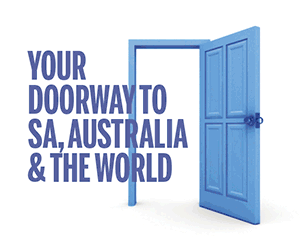
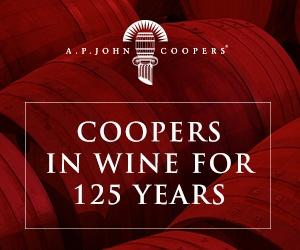


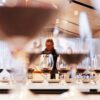

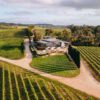
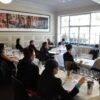
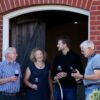
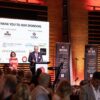
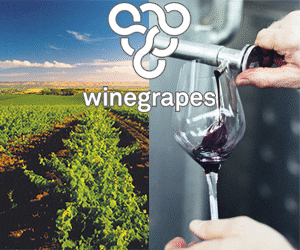
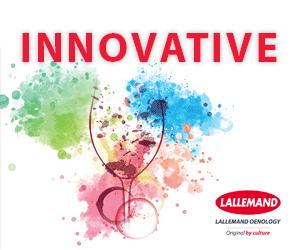
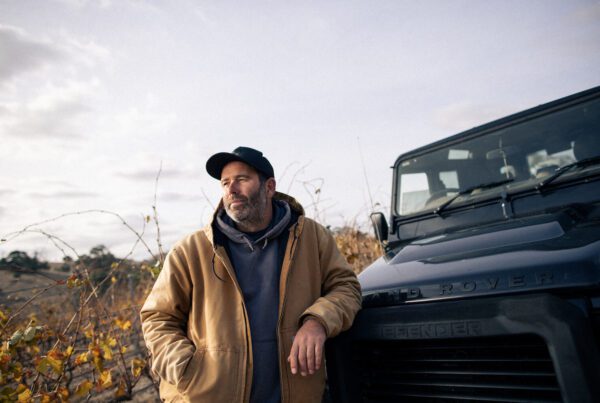

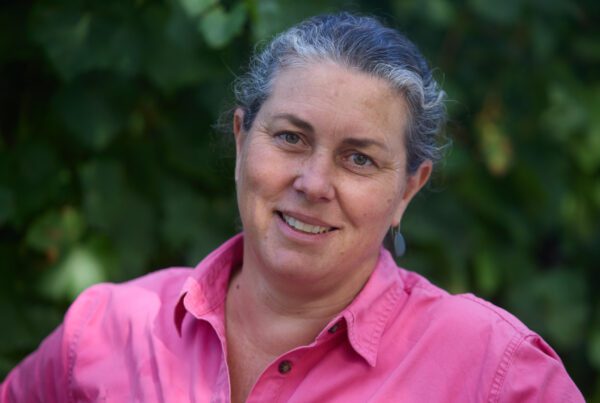
Recent Comments